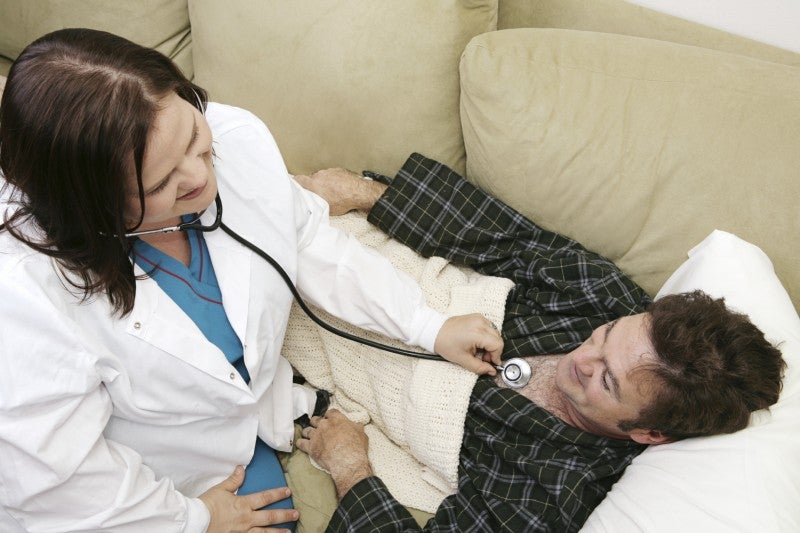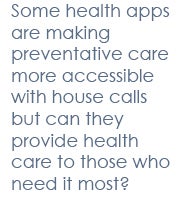
When I moved to DC one year ago, I quickly started using Uber. Without a doubt, Uber improved the quality of my life in this city. I request Uber rides for a trip to the airport, a safe ride at night to my house, and also when I’d ordinarily use a taxi but see none in sight.
Despite my completely urban reliance on Uber, I was surprised to learn during a Global Health and Development quarterly team meeting that Uber was entering the health care field with UberHEALTH. A one-day pilot program offered last October, UberHEALTH provided flu shot vaccinations and preparation packs directly to your home in Boston, DC, and New York. On that particular day, users were able to order a registered nurse to administer up to 10 flu vaccination shots through the Uber app at no cost.

A few days after the meeting, I left my office early because I felt ill. I hopped on the Metro, but after a few stops, I felt an urgent need to be home more immediately. I exited the Metro, made it to the top of the tall escalator and fainted. Sitting on the Washington sidewalk with pigeons and trash, I did what I suspect any 20-something with a smart phone would do; I called Uber. Within minutes, my Uber driver arrived and I was on the way home in a clean vehicle made no earlier than 2004.
Feeling that Uber had in some way saved me that sick day, I did some research on the company’s entry into the health arena and what the possibilities for that could be. It turns out that UberHEALTH is just one of many apps’ foray into the house call phenomenon that was once popular decades ago. Other apps such as Medicast and Pager enable users to request doctors’ visits to their home virtually 24/7, with fees reimbursable under some insurance plans. And then there are the apps offering patients virtual house calls, using text messaging, photos and video chat to answer medical questions.
The potential negative for UberHEALTH and new health apps entering the health field would be if their involvement only skims the surface. “If they’re not providing it to people who can’t afford it or are not as mobile, then they would be missing the possibility of social impact,” said Katie Drasser, deputy director of the Aspen Institute Global Health and Development Program.
“The people who generally use Uber as a car service are more affluent and presumably have easier access to these services anyway,” said Ruth Katz, executive director of the Aspen Institute Health, Medicine, and Society Program. “Unless they work very hard at it — and they can — they’re going to have to reach out to attract a population that doesn’t use Uber or a smart phone on a regular basis.”
Assuming that this sector will continue to expand its work in the health field, imagine if it did so in a philanthropic manner. In a country with growing inequality in many aspects, including in access to health care coverage, what are the missing gaps and pieces these apps could fill to address the medical needs of those without health insurance or access to care?
For example, in cities that lack sufficient public transportation, such as my hometown, Tulsa, OK, UberHEALTH could provide transportation for citizens that face geographic barriers to access health services. In the same vein, UberHEALTH could donate its transportation services to rural populations that tend to utilize preventative care less often than their urban counterparts.
From a public health lens, Drasser and Katz agree that UberHEALTH and related apps’ real strengths would come from a preventative health angle, by providing a fuller primary care service with an educational component. If these companies continue to address health issues on a one-off basis they would miss an opportunity to strengthen America’s health care system.
Spotlight Health returns to the Aspen Ideas Festival this year with speakers and audience members from around the world discussing today’s cutting-edge health technology and the world’s most pressing health issues. Read more about this year’s four program tracks and register here to attend.

